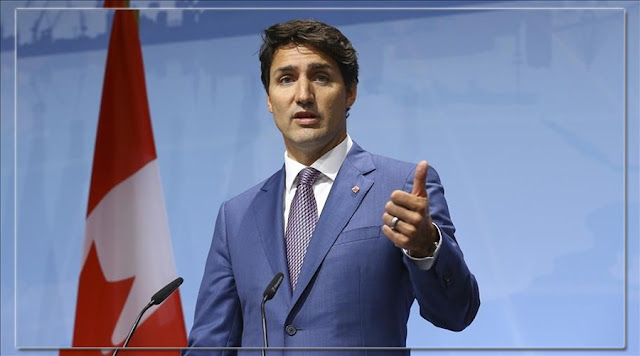Canada Joins Growing List of Countries Halting Arms Sales to Israel
Canada has become the latest country to suspend arms shipments to Israel, following the lead of the Netherlands, Japan, Spain, and Belgium. The decision comes in response to Israel's recent military offensive in Gaza, which has prompted international condemnation and calls for action. The move by Canada comes after a nonbinding motion was passed in the House of Commons to halt weapons sales to Israel.
Foreign Affairs Minister Melanie Joly confirmed the decision, stating that Canada will cease all arms shipments to Israel. This move reflects the growing global pressure for countries to take a stand against the violence and human suffering in the region. While some Western countries continue to supply lethal weapons to Israel, several nations have taken steps to suspend or halt arms sales.
The United States, as Israel's closest ally, has been a major supplier of defense equipment, including bunker buster bombs. Despite the mounting civilian casualties and an imminent famine, the US has maintained its support for Israel. However, other countries, such as the Netherlands, Germany, and the United Kingdom, have also been significant contributors to Israel's military imports.
Germany, for instance, accounts for 28 percent of Israel's military imports, primarily providing components for air defense systems and communications equipment. The United Kingdom has licensed substantial military exports to Israel, including aircraft, missiles, tanks, and technology. Canada, although claiming not to send full weapons systems, has faced criticism for downplaying its military support to Israel.
The international community's response to the crisis in Gaza has been mixed. While some countries have taken decisive action to halt arms sales, others have continued to supply weapons despite the ongoing humanitarian crisis. The recent interim ruling by the International Court of Justice (ICJ) on South Africa's genocide case against Israel has further fueled calls for countries to reassess their arms exports.
The ICJ ruling, which stated that Israel is "plausibly" committing genocide in Gaza, has prompted humanitarian organizations worldwide to pressure their governments to halt arms sales and military aid. The ruling emphasizes the legal and political obligations of countries to prevent genocide and raises questions about complicity in violations of international law.
As the global response to arms sales to Israel intensifies, countries face the challenge of balancing their economic and political interests with the need to address humanitarian concerns. The decision by Canada and other nations to suspend arms shipments reflects a growing recognition of the urgency to address the ongoing crisis. However, sustained international pressure and transparency regarding existing arms export permits are crucial to ensure lasting change and prevent further human suffering.
The response to arms sales to Israel varies among countries, with some halting exports and others continuing to supply weapons. The ICJ ruling has played a significant role in raising awareness and prompting action. As the situation in Gaza continues to deteriorate, the international community faces a critical choice between complicity and taking meaningful steps to address the humanitarian crisis.
News Agencies

